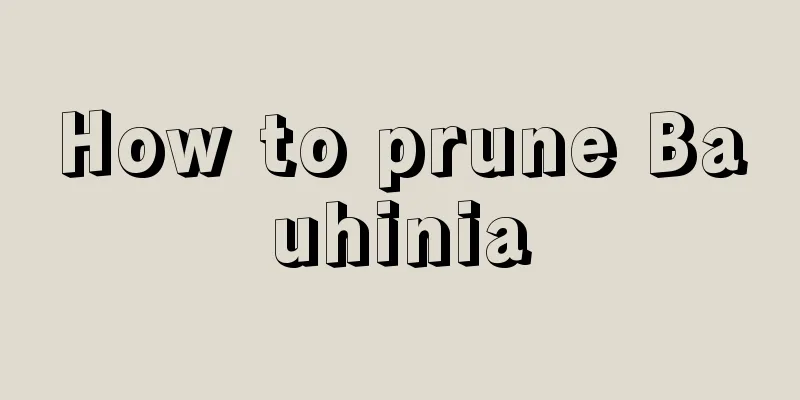How to prune Bauhinia

Heavy CutBauhinia has strong adaptability. Under normal growth conditions, the main and side branches of a tree that has been planted for more than 5 years will become very dense, many of which are old branches that have begun to lose their ability to regenerate. At this time, the old branches must be removed through heavy pruning, and then the branch space can be adjusted to promote the growth of new branches. ThinningPruning is usually done once a year after the leaves fall and before the buds sprout. Depending on the age and growth conditions of the main branches, remove the old large branches and cross branches so that the remaining main branches are evenly distributed with appropriate density. During winter pruning, worthless branches should be thinned out at any time, such as dead branches, short branches, crossed branches, etc., to promote better growth of new branches. ShortIt is mostly used for pruning in summer. After entering the flowering period, it is necessary to prune or pinch off the top in time. After the flowers fall, the remaining flowers and pods should be cut off to avoid consuming nutrients and affecting plant growth and flower bud differentiation. Plastic surgery methodTree SelectionThe crown of Bauhinia is naturally open. Because it has strong germination and tillering ability, its branches grow fast and it is easy to grow in a tangled mass. It is often cultivated as a shrub. Shrub-like shapingGenerally, 3-5 main trunks are left, which are required to be reasonably distributed, and the trunks are cut off the ground to promote branching. In spring, it is necessary to remove buds appropriately, and retain about 3 or 4 branches on each main trunk as the first layer of side branches. By shortening them during pruning during the dormant period, the basic skeleton can be formed. If the branches are sparse, you can also prune them in early spring to promote branching, or promote secondary branches by pinching and pruning to expand the crown. ArborizationFor tree-like pruning, generally the thickest branches are determined as the main trunk first, and then they are cut back at 50-80cm to cultivate secondary and tertiary main branches. After 2-3 years of pruning, the skeleton of the tree shape can be gradually determined, forming a full and dense crown. After the trunk is fixed, prune during the dormant period. After cutting off dead, diseased branches, parallel, endophytic, and crossing branches, some thick suckers are retained, which can be used to renew and strengthen the tree. The rest of the root suckers are cut off. It should be noted that when pruning, the strong flowering old branches should be protected, and some branches that are too long should be shortened. |
<<: How to propagate horse chestnut
Recommend
Pictures of flowers, quickly identify several types of flowers
Flower recognition Below, take a look at the pict...
Can maple trees be planted outside your home?
Can maple trees be planted outside your home? The...
What is the reason why the lotus does not bloom?
The lotus , also known as the lotus, usually has ...
How to plant peppers in pots
Potted peppers usually have small plants, green l...
How to pinch the tips of million bells
Topping method Step 1: First pinching After the s...
How to remove leaves and prune eggplant (How to prune side branches and retain fruit when growing eggplant)
How to prune eggplants? How to reserve side branc...
20 common flowers, now 100% survivable by cuttings!
Peperomia 1. Cut 8 cm long branches of Chinese ev...
Fertilization method for growing flowers in autumn
Tips for fertilizing flowers in autumn Fertilizat...
Cultivation methods and precautions of hydroponic ivy
1. Temperature It prefers a warm environment, and...
How long to cook corn
1. How long to cook corn 1. Different varieties: ...
How to trim bottle orchid leaves that are too long?
The bottle orchid is a unique foliage plant with ...
How to grow mint vigorously
1. Suitable soil If you want mint to grow vigorou...
What are the cultivation methods and precautions for Cymbidium orchids?
Cymbidium orchid growth habits Cymbidium orchid p...
What to do if Gloxinia does not bloom
Choose good varieties of Gloxinia seeds If you wa...
Does jasmine need pruning? When should the branches and leaves be pruned in winter?
The flowering of jasmine is closely related to pr...









